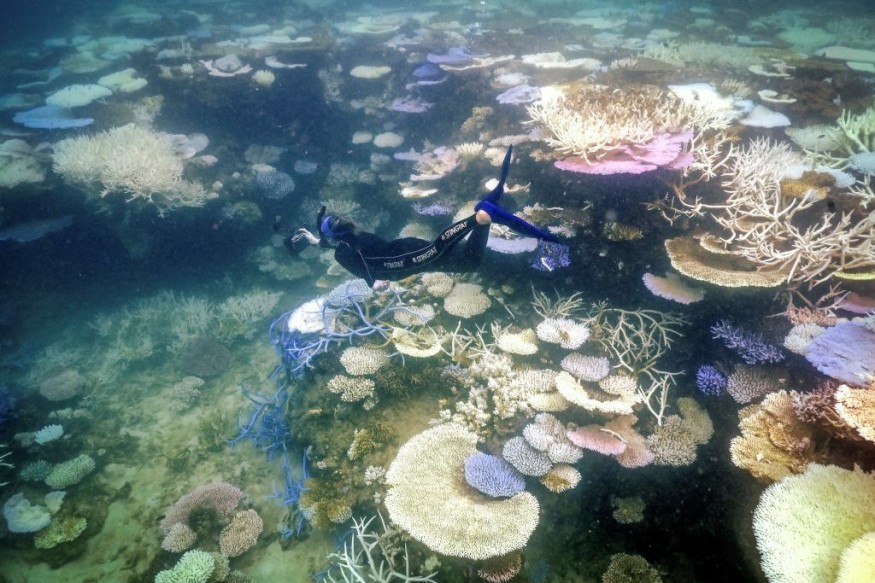Coral reefs worldwide are bleaching for the fourth time as a result of warmer ocean waters and human-caused climate change, according to top reef scientists.
Many of the world's colorful coral reefs have turned ghostly white along coastlines ranging from Australia to Kenya to Mexico, marking the fourth global bleaching event in the last 30 years.
Mass Bleaching

At least 54 countries and territories have seen mass bleaching along their reefs since February 2023 as climate change warms the ocean's surface waters, according to the US National Oceanic and Atmospheric Administration's (NOAA) Coral Reef Watch, the world's leading coral reef monitoring organization.
"From February 2023 to April 2024, significant coral bleaching has been documented in both the northern and southern hemispheres of each major ocean basin," Derek Manzello, coordinator of Coral Reef Watch.
Coral reefs are vital ecosystems that support underwater life, conserve biodiversity, and halt erosion. They also boost local economies through tourism.
Bleaching has been happening in some locations for some time. In the world's biggest coral reef ecosystem, Australia's Great Barrier Reef, bleaching affected 90% of the coral examined in 2022. The third-largest coral reef, the Florida Reef, had substantial bleaching last year.
However, in order for bleaching to be declared on a worldwide scale, significant bleaching must be verified in each of the main ocean basins, including the Atlantic, Pacific, and Indian oceans, in both the Northern and Southern Hemispheres.
Reefs May Not Recover
Scientists have warned that many of the world's reefs may not recover from the high, long-term heat stress.
"What is happening is new for us and for science. We cannot yet predict how severely stressed corals will do," said marine ecologist Lorenzo Alvarez-Filip from the National Autonomous University of Mexico.
The news marks the second global bleaching episode in the last ten years. The last one concluded in May 2017. It lasted three years and was assessed to be worse than the previous two bleaching incidents in 2010 and 1998.
This year's bleaching comes after the revelation that 2023 was the hottest year on record.
Recurring bleaching events are also challenging prior scientific estimates that predicted that between 70 percent and 90 percent of the world's coral reefs would be lost if global warming hit 1.5 degrees Celsius (2.7 degrees Fahrenheit) over pre-industrial levels. To date, the earth has warmed by approximately 1.2 degrees Celsius (2.2 degrees Fahrenheit).
In a 2022 assessment by the UN Intergovernmental Panel on Climate Change, experts estimated that merely 1.2 C (2.2 F) of warming will be enough to severely harm coral reefs, "with most available evidence suggesting that coral-dominated ecosystems will be non-existent at this temperature."
Selina Stead, a marine biologist and chief executive of the Australian Institute of Marine Science, called climate change "the biggest threat to coral reefs worldwide."
She said scientists are working to learn more about how corals respond to heat and to identify naturally heat-tolerant corals, but it is "critical the world works to reduce carbon emissions."
The Flower Garden Banks National Marine Sanctuary, located in deeper water in the Gulf of Mexico about 100 miles off the Texas coast, performed better than neighboring reefs last year.
Related Article: Marine Biologists are Making Efforts to Save Coral Reefs in Mariana Islands
© 2025 NatureWorldNews.com All rights reserved. Do not reproduce without permission.




